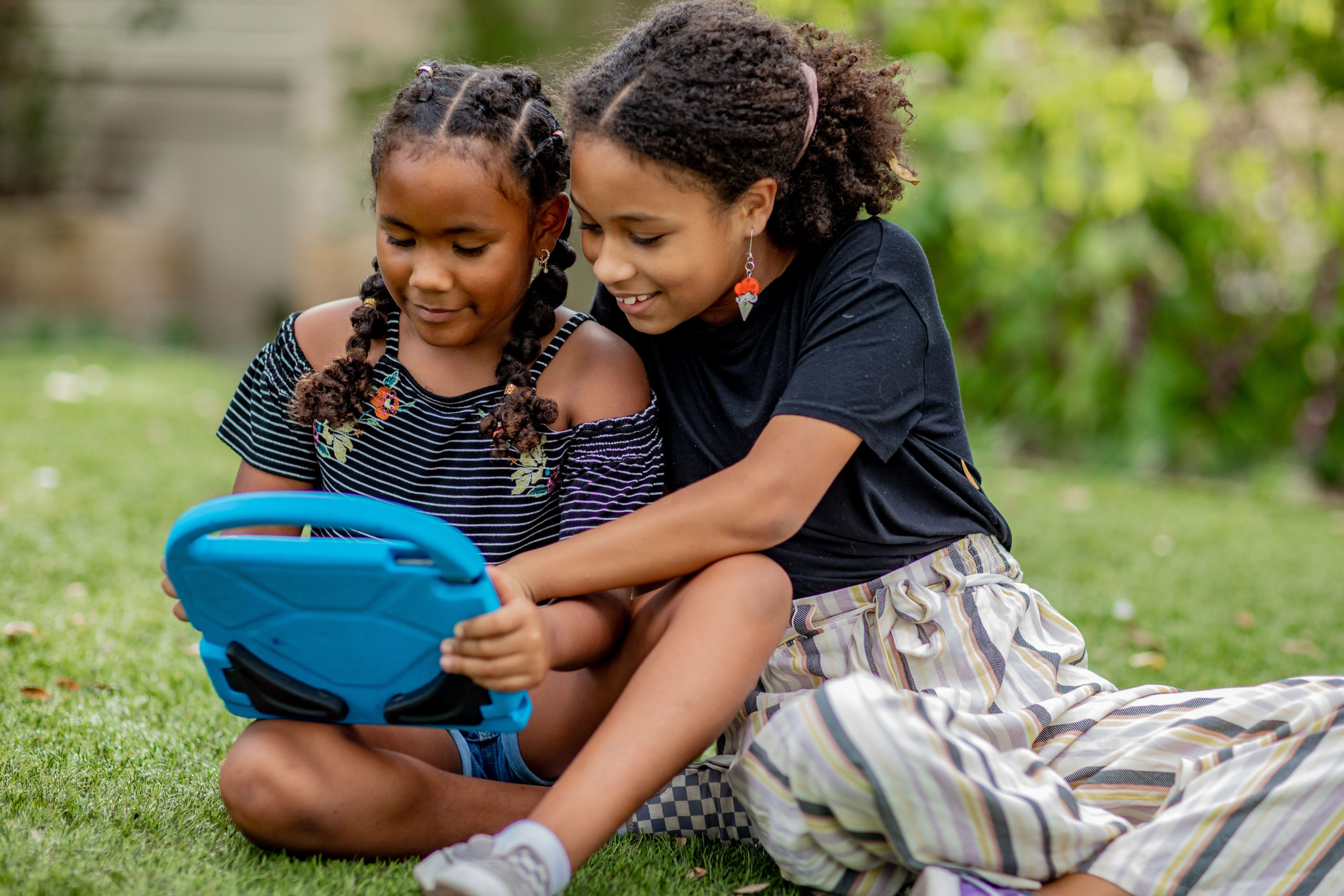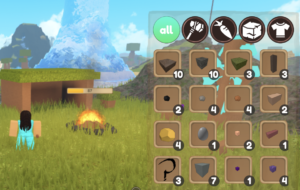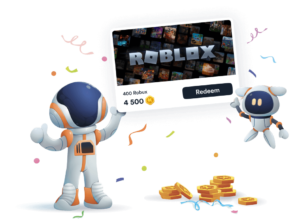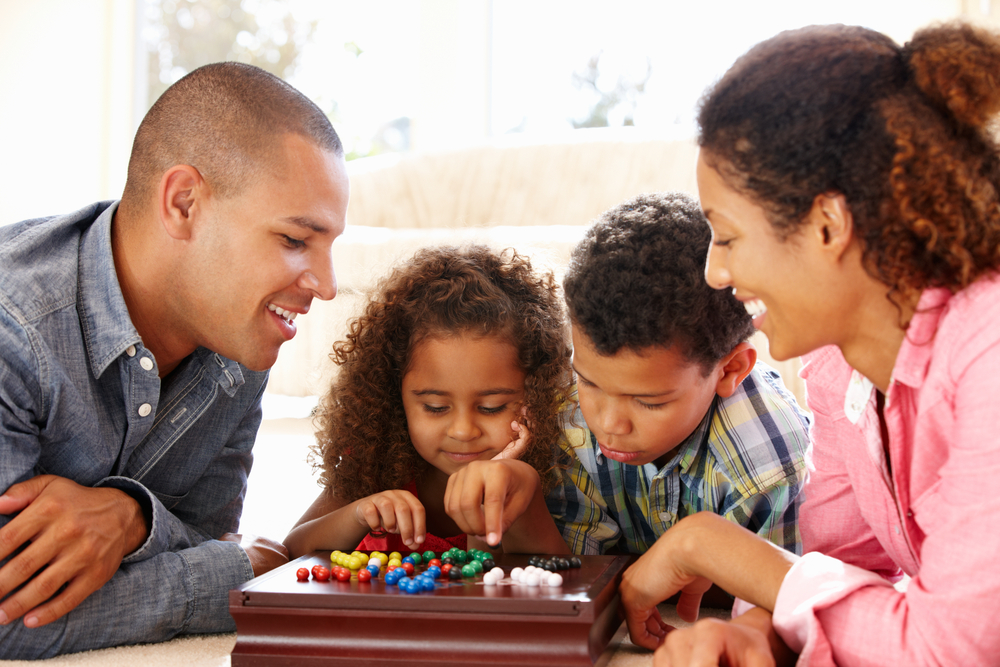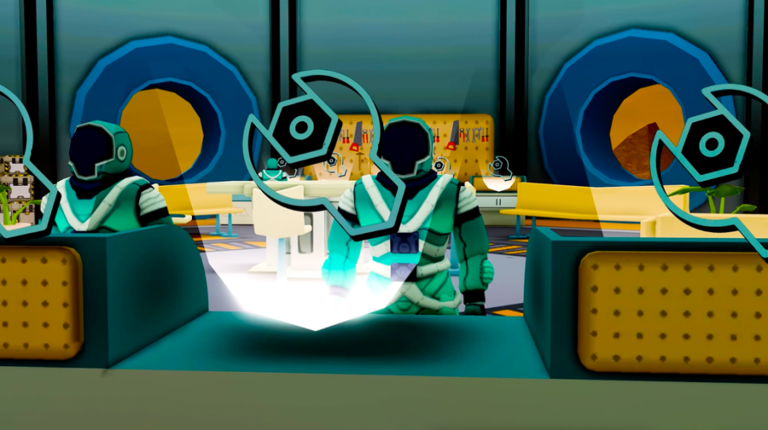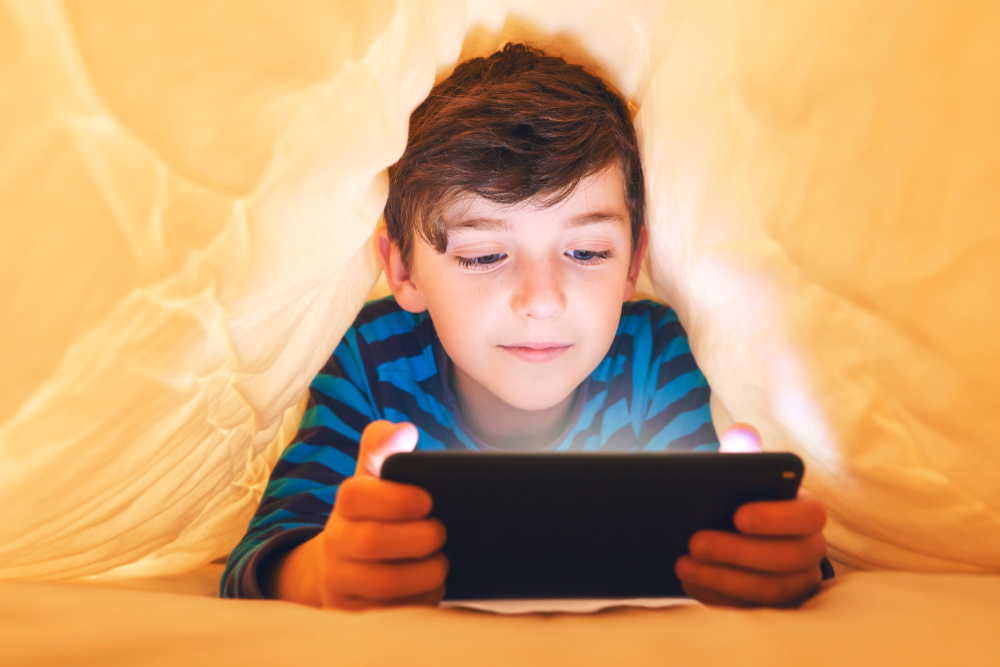“Learnified Gaming” — What It Is and Why It’s Better for Learning
Gamified learning is everywhere nowadays. Apps like Prodigy and Teach Your Monster to Read can help your kiddos practice their math and reading skills with a side of fun.
But these apps still feel like schoolwork. Sure, they’re more engaging than your typical lectures, but your child knows these programs are for “learning”. And platforms like Roblox are where the real fun is.
What if you could bring more learning to Roblox? Not by forcing them to play “educational” games, but rather simply encouraging them to play the best, most challenging games on the platform. Games that millions of kids are already choosing to play.
Welcome to the world of Learnified Gaming!
What is Learnified Gaming?
Learnified Gaming is the concept that many games designed for entertainment have learning built in. New ideas can be discovered and skills practiced inside the video games your child already enjoys.
With Learnified Gaming, you’re not taking educational topics and trying to make them fun with rewards and leaderboards (that is gamified learning). Instead, you’re taking games created for entertainment and finding (then boosting) the learning that’s already inside of them.
After years of hearing that video games are a waste of time (or even rotting our children’s minds), it can be a bit hard to imagine games as inherently educational. But as you can see on our blog, there are tons of learning takeaways to be found in video games. And Kinjo is here to help you find and navigate the best games inside of Roblox.
Find the Value in Gaming with Kinjo
Many parents are hesitant to embrace Learnified Gaming. Screen time is one concern of course. And it can be difficult to measure the learning your child is getting from their video games.
Educational games, or gamified learning, often have assessments and tracking built in — helping you justify the extra screen time. But Kinjo isn’t encouraging more screen time. Instead, we’re looking to maximize the time they’re already spending in games. They don’t earn more rewards for playing more — they earn more rewards for playing smarter.
How Kinjo works with Roblox to increase learning
With Kinjo, your child is directed to the best Roblox games for learning. And then encouraged to level up their gameplay by choosing the games with more challenge.
When your child accesses Roblox with the Kinjo app, they’re presented with a dashboard full of recommended games. These are games Kinjo has reviewed and rated based on the amount of challenge and learning inside each game. When a game is given a flame rating, you know it has learning value built right in.
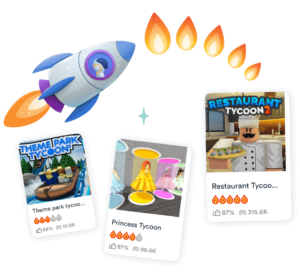
Of course, not every game has learning potential. As a parent, you’ve likely seen some of these more questionable games. Roblox is a huge platform with millions and millions of experiences, and it can be overwhelming to navigate. But Kinjo tackles that for you and your kiddo — leaving time for more fun and learning.
Kinjo rewards help kids make better choices
With Kinjo, your child is rewarded for playing better games with more learning. The greater percentage of time they spend in the higher-rated games, the more they can earn.
This creates the perfect combination of intrinsic and extrinsic motivators. The extrinsic motivators look a lot like traditional gamified learning models. Kinjo includes the flame ratings and an activity meter to help kids track their earning rate. And when they check in to the app regularly, they earn bonus coins — helping them get to the big rewards (like Robux) more quickly. These extrinsic motivators help your child create better habits — like choosing Kinjo-quality games more often.
And luckily, the intrinsic motivators for learning with games already exist. Kids everywhere are excited to play Roblox. Why? Because Roblox gives them
- fun and challenging environments to explore.
- virtual social time with their friends.
- lots of autonomy over their virtual, in-game decisions.
Kids love the freedom and fun Roblox provides. And Kinjo doesn’t remove any of that fun. Our app just streamlines the experience, making Roblox better primed for learning!
Why is Learnified Gaming Better than Gamified Learning
This mostly boils down to the gaming experience. Games created for entertainment have that primary goal in mind. It’s not secondary to learning — and you can feel that in how they are made.
In the best video games, the storylines are well-crafted, not just vehicles to get to the next academic milestone. Virtual worlds are expansive and full of things to explore. And the experience is designed for fun. And if your child doesn’t enjoy it, then they don’t have to play it. They can move on to something else.
But when you look at gamified learning, these components are secondary to the educational aspects of the game. Gamified learning experiences can feel contrived and superficial, lacking the depth and complexity of real-world problem-solving. And kids feel that.
Sure, games like Prodigy are more fun than worksheets. But when given the choice between Roblox and a learning app — well, kids know where the fun is. And the other is just another form of homework they have to complete.
Examples of Life Skills Found in Learnified Gaming Experiences
Our blog has detailed many different ways your child can learn from video games — covering everything from math to social skills. But there are always more life and academic skills to share. It really is crazy just how much your child can learn from their game time.
Here are two more examples of life skills that can be learned and practiced in video games that may surprise you.
Selective Attention
Video games often require players to focus on a specific task or goal while ignoring other distractions in the game environment. When children play video games, they quickly learn how to filter out irrelevant information. Those distractions can get your character killed in a boss fight or make you miss an important jump.
If you have ever watched your child play Fortnite, then you’ve likely seen this skill at work. They’re ignoring the shots being fired to their left, and instead are yelling commands to their friends, or switching out their inventory to restock ammunition or aid.
With practice, they become better at quickly identifying and prioritizing the most critical information. Of course, sometimes that means they’re choosing to not focus on you. And while that’s frustrating, it’s also a skill that can serve them well at school and in their future workplace.
Decoding Non-Verbal Communication
As the world continues to move online, this skill is proving to be even more useful. As your child plays video games, they’re interacting with kids all over the world via their gaming avatars. And this sometimes requires communicating without the use of spoken (or at times even written) words.
Even though Roblox has a chat feature (and voice chat for those ages 13 and up), there are times when the ability to communicate is not available. Either someone’s chat is turned off, they don’t have access to a mic, or the character is an NPC (non-playable character, aka AI).
As a result, children become experts at picking up non-verbal cues. They can decipher a player’s movement or emotes to help them choose a course of action. For example – when joining a new server, if a player runs up to and around them, experienced gamers know this player wants you to follow them.
In the real world, being able to understand non-verbal communication is important in social situations such as staff meetings or loud gatherings. This skill increases your child’s ability to empathize with others and could help them avoid uncomfortable social situations.
Bring More Learning to Their Game Time with Kinjo!
Kinjo is a big fan of learnified gaming. Games carry so much educational value! But we also understand that not all games are created equal.
Roblox is full of great games for learning. But with the millions and millions of games available to choose from, sometimes it’s hard to find the best options. If your kiddo loves Roblox, but you’re worried about their screen time choices, download Kinjo – Play Smart and Earn on their device!
Kinjo will help direct them to the best games for learning — ones that are full of challenge AND fun. And they’ll be happy to play them. Why? 1. Because they’re awesome games. And 2. Because they’ll be earning rewards they can exchange for Robux — the ultimate in-game currency!
Give it a try and take the stress out of screen time!
Download Kinjo – Play Smart and Earn on your child’s device to help them find their way to the best Roblox games for learning.

